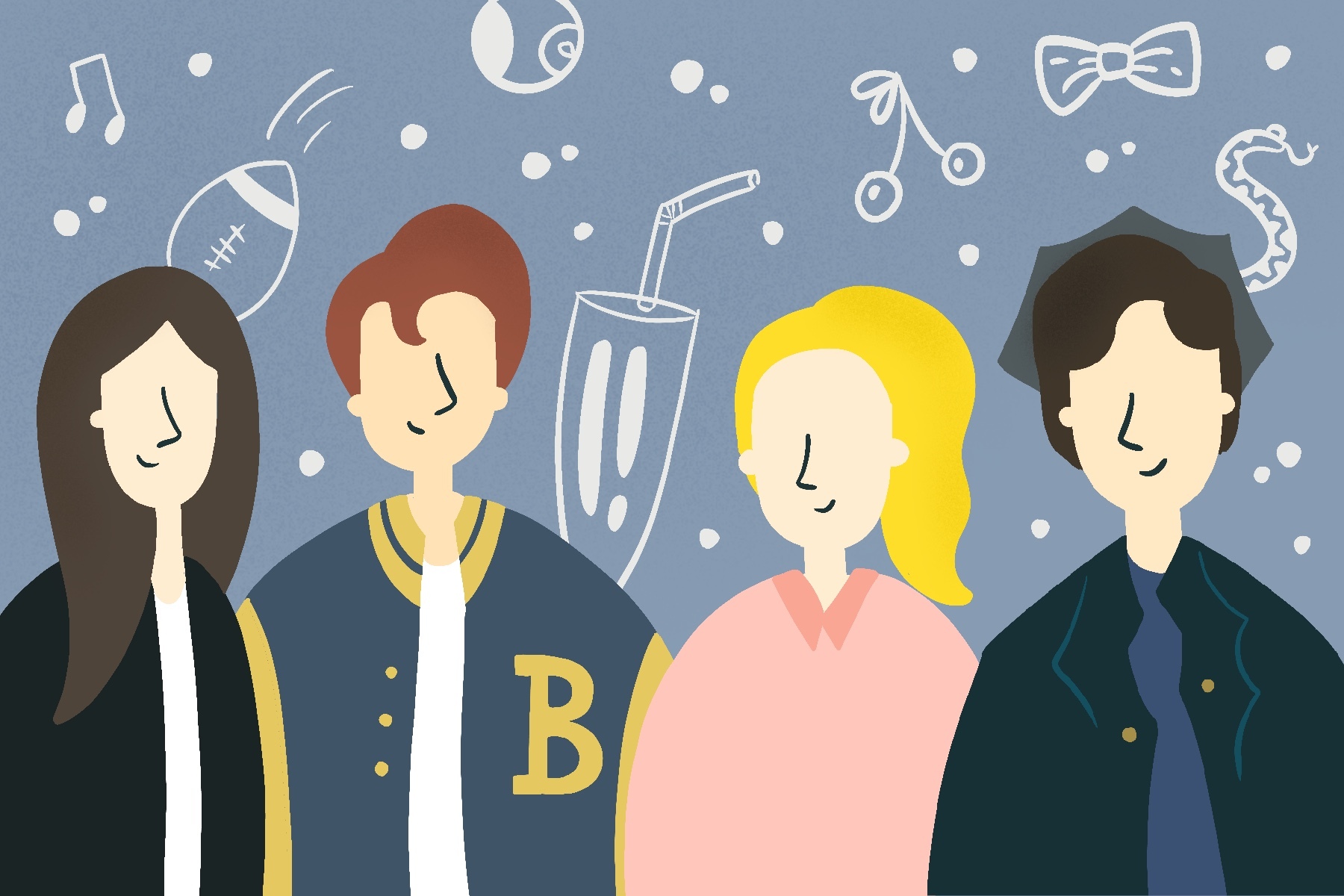“Riverdale” begins unassuming, much like many other high school dramas. The primary focus at the very start is on three characters: Archie, Veronica and Betty. Betty and Archie have the classic will-they-won’t-they dynamic, and newcomer Veronica adds a new dimension and more pressure to their relationship. Betty has a gay best friend that gives her advice on how to proceed, and Archie finds himself struggling under the expectations of his father. Sure, some of the characters’ dialogue — especially Veronica’s — is a little overwritten and quippy, but any audience member could write that off as a stylistic choice. So far, everything seems in order for “Riverdale” to be forgettable but enjoyable.
And then she emerges, like a specter from a thick, blank fog. Only briefly had she been shown prior, peeking out from the foreground in short scenes where the true horror of her dialogue slumbered. Her title heralds her arrival: The line “It’s all about Cheryl trying to win the Best Supporting Psycho Oscar for her role as Riverdale’s bereaved Red Widow,” trumpets as she lumbers toward the rest of the cast. Her footsteps strike fear into the souls of even the bravest — ba-boom, ba-boom, ba-boom — as anyone can tell that she is soon to let fall a horrific torrent from her mouth. And like a banshee’s wail it comes; oh, the humanity! “So what are you three hens gossiping about?” she cries. “Archie’s Efron-esque emergence from the chrysalis of puberty?” Nothing save for the screams of the damned grip the hearts of men as she does!
But maybe, just maybe, it was some kind of a mistake, an anomaly if you will. Maybe the writers tripped and fell on their keyboard, or one of their toddlers found a thesaurus. With somehow a sliver of hope still intact, we watch as she vanishes off the edge of the frame just as quickly as she had materialized. The echoes of her Twitter handle still ring in our ears as we pray to whatever deity we know that she stays far, far away. I personally phoned my priest, who came to anoint my MacBook and ward for evil spirits. With her departure, everything returns once more to a mildly enjoyable high school drama, and we are almost able to forget what unspeakable events just transpired.
So we are whisked away deeper into the murder mystery plot — yes, “Riverdale” is also a murder mystery — and learn more about the main characters. We discover that Archie, who is a sophomore in high school, was romancing his teacher near the scene of the murder, but is afraid to say anything lest his involvement with his teacher be revealed. “Oh, that sounds interesting,” you might say. It’s then followed by a shallow but entertaining scene where Veronica and Betty give Cherly her comeuppance and tell her off during a cheerleading try-out. “That scene wasn’t even bad!” you might add, “And it had Cheryl in it. Really the writing in the first scene must have been a fluke.” Little would you know that, just like a siren beckoning weary sailors, you too have been lured into a dangerously false sense of security.
Sure enough, over the next hour of the show, we are barraged with lines like, “Who wants to tryst in the Closet of Love first?” Even I, the king of needlessly complicated words, would struggle to use “tryst” in a sentence. But even worse than an expected blow is an unexpected one, and so when a character is introduced that rivals Cheryl in all her glory, our life-altering experience is had yet again. This time our senses are accosted by a character named Jughead, who casually drops this gem: “Sardonic humor is just my way of relating to the world.” Once again that terrifying sentiment comes roaring back. “Begone foul devil! Begone from here!” we cry, clutching our sacred texts as the undiluted edge seeping from Jughead’s pores take us by the throat. It becomes quickly apparent that the writing in “Riverdale” will never stray from this harrowing path.
Still, even despite the countless mid-life baptisms and exorcist fees for which “Riverdale” has surely been at fault, the show has continued to be one of Netflix’s most popular series. And after having watched a considerable amount of it, I can understand why. The key to enjoying “Riverdale” is not to take the show as seriously as it takes itself; rather, one must treat it as they would treat a really bad joke. In some way, these attempts at humor are able to bend backward through our minds, being so unfunny that they somehow become hilarious. With this in mind, watching “Riverdale” can be reduced to excitedly waiting for that next terrible line of dialogue, and therefore, in some way, it can succeed. Most shows struggle to keep an audience on the edge of their seat, but “Riverdale” does exactly that — albeit unintentionally.

















